Finance
World Bank cut Nigeria’s growth projection to 1.9%


The World Bank has once more reduced its growth projection on Nigeria in 2018 to 1.9 per cent, down from the 2.1 per cent it had estimated for the country in April.
The Bank hinged its decision on the contraction in the agricultural sector as a result of the farmers and herders’ crisis recorded by the country most part of this year.
It explained: “In Nigeria, declining oil production and contraction in the agriculture sector partially offset a rebound in the services sector and dampened non-oil growth, all of which affected economic recovery.”
“Nigeria’s recovery faltered in the first half of the year. Oil production fell, partly due to pipeline closures.
“The agriculture sector contracted, as conflict over land between farmers and herders disrupted crop production, partially offsetting a rebound in the services sector and dampening non-oil growth.”
In April, the World Bank had predicted growth of 3.1 per cent, up from 2.3 per cent last year.
But it anticipated that growth in the region would increase from 2.7 per cent in 2018, to 3.3 per cent in 2019, rising to an average of 3.6 per cent between 2020 and 2021.
“The slower pace of the recovery in sub-Saharan Africa (0.4 percentage points lower than the April forecast) is explained by the sluggish expansion in the region’s three largest economies, Nigeria, Angola, and South Africa.
“In Nigeria, declining oil production and contraction in the agriculture sector partially offset a rebound in the services sector and dampened non-oil growth, all of which affected economic recovery.
“A decline in oil production, due to underinvestment and key fields reaching maturity, weighed on growth in Angola. South Africa’s economy slipped into a technical recession following two consecutive quarters of contracting economic activity, with agriculture, mining, and construction acting as major drags on growth,” it added.
The World Bank noted that several oil exporters in the Economic and Monetary Community of Central Africa (CEMAC) saw an uptick in growth. With higher oil prices and an increase in oil production, both Chad and the Republic of Congo were expected to climb out of recession.
According to the Washington-based institution, growth in non-resource-rich countries remained solid, supported by agricultural production and services on the production side, and household consumption and public investment on the demand side.
“With fiscal deficits narrowing, government debt levels appear to have stabilised, but vulnerabilities remain. Compared to 2012 to 2013, the median public debt level remains high, especially in oil-exporting countries. Debt rose in about two-fifths of the countries in 2017 and was above 60 per cent of GDP in one-third of the countries.
“The external environment facing Sub-Saharan Africa is more challenging for several reasons. These include moderating economic growth among its main trading partners, the stronger US dollar, heightened trade policy uncertainty, and tightening global financial conditions.
“While the tightness of oil supply suggests that oil prices are likely to remain elevated through the rest of 2018 and into 2019, metals prices have been softer than previously forecast and may remain subdued in 2019 and 2020 amid muted demand, particularly in China.
“Against this backdrop, the economic recovery in Sub-Saharan Africa is expected to continue at a gradual pace, supported by a rebound in oil production in Nigeria and Angola, the easing of drought conditions that had depressed agricultural output, and a rise in domestic demand in some countries,” it stated.
“Growth in the region is projected to increase from 2.7 per cent in 2018 to 3.3 per cent in 2019, rising to an average of 3.6 per cent in 2020–21. However, per capita income growth would remain below its long-term average in many countries, highlighting the need for comprehensive policy measures to raise potential output.
“The inefficiencies in the way the region combines its factors of production has become increasingly relevant in explaining Sub-Saharan Africa’s lower aggregate productivity compared to industrialised countries.”
Finance
AISA Has Refunded The Fees Paid By Yahaya Bello To EFCC
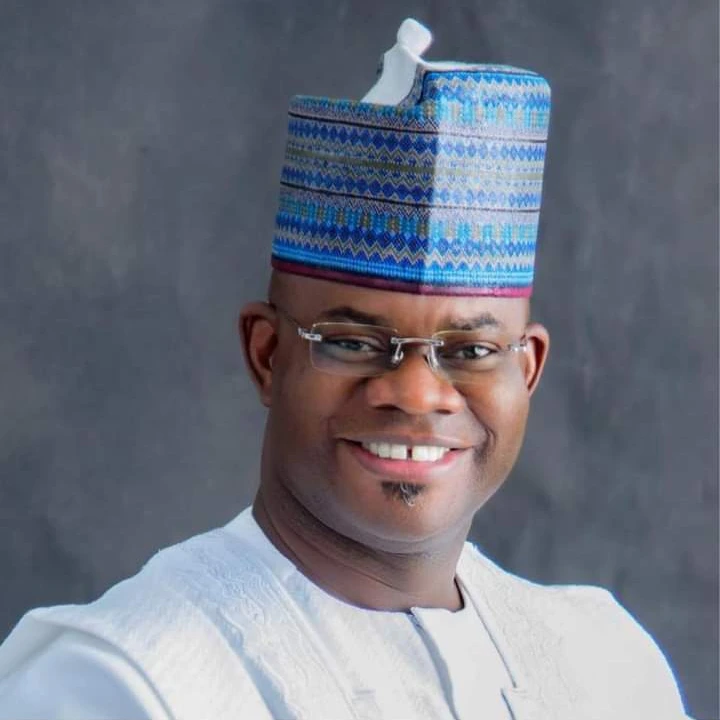


The Economic and Financial Crimes Commission (EFCC) says the American International School Abuja (AISA) has refunded the fees paid by the immediate past governor of Kogi state, Yahaya Bello, for his children attending the school.
In response to a letter addressed to the Lagos zonal commander of the EFCC, the school said $845,852 was paid in tuition “since the 7th of September 2021 to date”.
AISA said the sum to be refunded is $760,910 because it had deducted educational services already rendered.
“Please forward to us an official written request, with the authentic banking details of the EFCC, for the refund of the above-mentioned funds as previously indicated as part of your investigation into the alleged money laundering activities by the Bello family.
Since the 7th September 2021 to date, $845,852.84 (Eight Hundred and Forty-Five Thousand, Eight Hundred and Fifty Two US Dollars and eighty four cents) in tuition and other fees has been deposited into our Bank account.
We have calculated the net amount to be transferred and refunded to the State, after deducting the educational services rendered as $760,910.84. (Seven Hundred and Sixty Thousand, Nine Hundred and Ten US Dollars and Eighty Four cents).
No further additional fees are expected in respect of tuition as the students’ fees have now been settled until they graduate from ASIA.”
In a chat with The Cable, the spokesperson of the EFCC, Dele Oyewale, confirmed that the school has refunded the money.
‘’The money has been paid into public account,” Dele Oyewale was quoted as saying
Finance
Godwin Emefiele Disobeyed Direction Of Law With Intent To Harm The Public, He Printed ₦684.5M Using ₦18.9B Says EFCC in fresh charge


The Economic and Financial Crimes Commission has filed a fresh charge at the High Court of the Federal Capital Territory against the embattled former governor of the Central Bank of Nigeria, Godwin Emefiele.
EFCC in the charge accused Emefiele of approving the printing of N684,590,000 at the rate of N18.96 billion.
EFCC also alleged that Emefiele broke the law with intent to harm the public during his implementation of the naira swap policy of the administration of former President Muhammadu Buhari.
The anti-graft agency also accused Emefiele of unlawfully approving the withdrawal of N124.8 billion from the Consolidated Revenue Fund of the Federation.
EFCC’s top prosecutor, Rotimi Oyedepo, SAN revealed that Emefiele will be arraigned on a new four-count charge before Justice Hamza Muazu
Counts one to four of the charge, read,
“STATEMENT OF OFFENCE: Public Servant disobeying direction of law with intent to cause injury to the public contrary to and punishable under Section 123 of the Penal Code Law, Cap. 89 Laws of the Federation, 1990.
“PARTICULARS OF THE OFFENCE: That you GODWIN IFEANYI EMEFIELE between the 19th day of October 2022 and 5th March 2023 in Abuja, knowingly disobeyed the direction of Section 19 of the CBN Act, 2007, by approving the printing of N375,520,000.00 pieces of colour swapped N1, 000, at the total cost of N11,052, 068,062 without the recommendation of the Board of Central Bank and the strict approval of the President, Federal Republic of Nigeria which conduct of yours caused injury to the public and you thereby committed an offence.”
This and three other charges were stated against him. They read;
“COUNT 2: “That you, GODWIN IFEANYI EMEFIELE, between the 19th of October 2022 and 5th March 2023 in Abuja, knowingly disobeyed the direction of Section 19 of the Central Bank of Nigeria Act, 2007, by approving the printing of 172,000,000 pieces of colour swapped N500 (Five Hundred Naira) Notes, at the total cost of N4, 471,066,040 without the recommendation of the Board of Central Bank and the strict approval of the President, Federal Republic of Nigeria which conduct of yours caused injury to the public and you thereby committed an offence.
“COUNT 3: “That you GODWIN IFEANYI EMEFIELE between the 19th day of October 2022 and 5th March 2023 in Abuja, knowingly disobeyed the direction of Section 19 of the CBN Act, 2007, by approving the printing of 137,070,000 pieces of colour swapped N200 (Two Hundred Naira) Note, at the total cost of N3, 441, 005, 280 without the recommendation of the Board of Central Bank and the strict approval of the President, Federal Republic of Nigeria which conduct of yours caused injury to the public and you thereby committed an offence.”
“COUNT 4: “That you, GODWIN IFEANYI EMEFIELE, on or about the 7th day of October 2020, in Abuja, within the jurisdiction of this Honorable Court, knowingly disobeyed the direction of Section 80 of the Constitution of the Federal Republic of Nigeria, 1999 (As Amended), by approving the withdrawal of the total sum of N124, 860, 227, 865.16 from the Consolidated Revenue Fund of the Federation in a manner not prescribed by the National Assembly, which conduct of yours caused injury to the public and you thereby committed an offence.”
Finance
Immigration Office Place Ex Governor, Yahaya Bello On Watchlist While IG Of Police Withdraws All Police Officers Attached To Him



The Inspector General of Police, Olukayode Egbetokun, has withdrawn all police officers attached to the embattled former Governor of Kogi State, Yahaya Bello.
The order for the withdrawal was contained in a police wireless message. The document with reference number:
“CB:4001/DOPS/PMF/FHQ/ABJ/VOL.48/ 34 reads in part;“IG has ordered the withdrawal of all policemen attached to His Excellency and former Executive Governor of Kogi State, Alhaji Yahaya Bello. Acknowledge compliance and treat with utmost importance.
Please, above, for your information and strict compliance.”
Meanwhile, the Nigerian Immigration Service has placed the former governor on its watchlist.
This comes after the Economic and Financial Crimes Commission on Thursday, April 18, declared him wanted in connection to an alleged case of money laundering to the tune of N80.2bn.


In a circular signed by an Assistant Comptroller of Immigration, DS Umar, for the Comptroller-General, Kemi Nandap, the NIS detailed the former governor’s name, nationality, and passport number.


And read;
“I am directed to inform you that the above-named person has been placed on the watch list.
Suffice to mention that the subject is being prosecuted before the Federal High Court Abuja for conspiracy, breach of trust, and money laundering vide letter Ref; CR; 3000/EFCC/LS/EGCS.1/ TE/Vide/1/279 dated April 18, 2024.
If seen at any entry or exit point, he should be arrested and referred to the Director of Investigation or contact 08036226329/07039617304 for further action.” the circular reads in part.
-

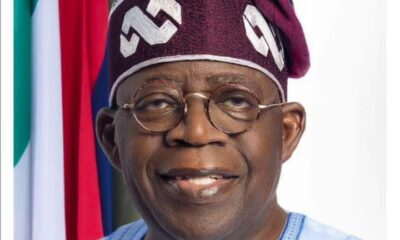

 Politics3 days ago
Politics3 days ago“Fuel Subsidy Removal Was A Necessary Action To Prevent Nigeria From Going Bankrupt” – President Tinubu
-

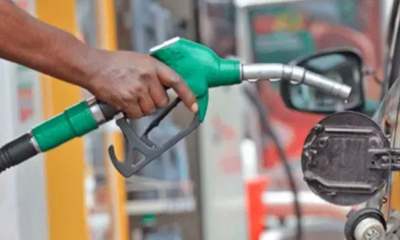

 News3 days ago
News3 days agoFuel Price Skyrockets To ₦1000 Per Litre In Some States As Scarcity Sets In
-

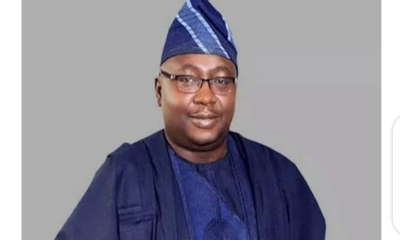

 News2 days ago
News2 days ago“There Would Be total Blackout For Three Months If Electricity Tariff Hike Is Not Implemented ” – Minister Of Power Warns
-

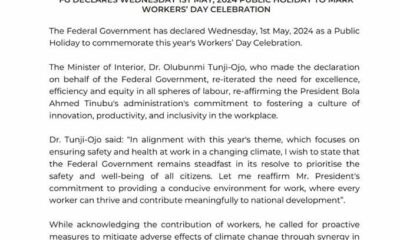

 News2 days ago
News2 days agoFG Declares May 1st Public Holiday To Mark Workers’ Day
-



 News1 day ago
News1 day agoNigerians Seek Woman Who Spoke Out Eloquently Against Fuel Scarcity In Viral 1994 TV Clip
-



 News9 hours ago
News9 hours agoAnambra State Government Arrests Man For Marrying Off His Underage Daughter






